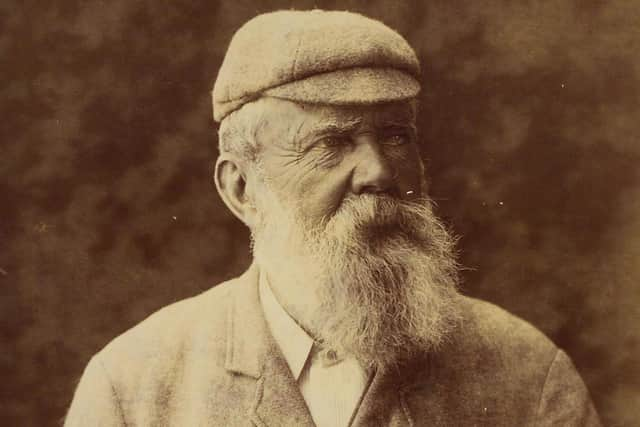New statue plan unveiled to honour Old Tom Morris at the Home of Golf in St Andrews
and live on Freeview channel 276
The team behind the project has been given the go-ahead by St Andrews Links Trust, custodians of the Tom Morris brand. The statue will be funded through private donations, local charities, and golfers from around the globe, and while it still has to secure planning approval from Fife Council, the aim is to have it unveiled in time for the AIG Women’s Open in 2024.
Old Tom Morris is a revered figure within the sport and a four-times Open champion. Born in St Andrews in 1821, he is generally regarded as the world's first professional golfer. He is buried in the the churchyard of St Andrew's Cathedral where a bronze statue attracts thousands of golfers each year to pay homage.
Advertisement
Hide AdAdvertisement
Hide AdRonald Sandford who chairs the of Old Tom Statue Project Group, welcomed news the project can go ahead.


He said: “Old Tom was a legend in his own lifetime and known then as the Grand Old Man of Golf. Be it winner of four Opens, or the creator of over 100 courses, he is Scotland’s greatest golfing icon and it is appropriate that St Andrews should herald one of its finest sons. “
Scottish sculptor David Annand will create the statue. His previous work includes the statue of golfing pioneer Dr John Rattray, installed at Leith Links.
He said, ‘It will be the opportunity of a lifetime to create this historic statue that will stand in St Andrews overlooking his shop and 18th green for all time coming. It may well be a new target line for those playing from the 18th tee. My hope is that a few words with Old Tom before you tee off the first will settle any first tee nerves.”
Advertisement
Hide AdAdvertisement
Hide AdThe idea for a statue came after Mr Sanford saw a sculpture to Old Tom while playing playing Rosapenna in County Donegal - “that statue was my inspiration and proved to be the beginning of a long running odyssey.’
Morris finished second in the first Open Championship in 1860, and won the Claret Jug in 1861, in 1862, 1864 and 1867.